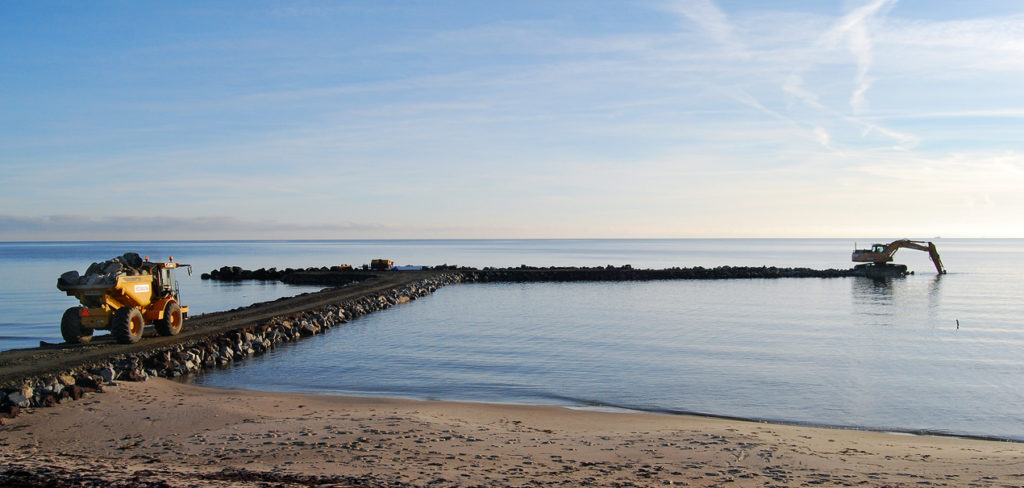 A significant proportion of our sea areas are strongly impacted by a multitude of human activities, and cumulative effects of various stressors on coastal and marine ecosystems is a pressing problem. The research project CARAMBHA runs between 2020-2022 and will develop methodologies for Marine Strategy Framework Directive status assessments on seafloor integrity.
A significant proportion of our sea areas are strongly impacted by a multitude of human activities, and cumulative effects of various stressors on coastal and marine ecosystems is a pressing problem. The research project CARAMBHA runs between 2020-2022 and will develop methodologies for Marine Strategy Framework Directive status assessments on seafloor integrity.

Construction of piers and jettys is one of many examples of how human activities negatively affect seafloor habitats. Photo: Jonn Leffmann, CC BY 3.0.
The seafloor is subject to physical pressures from many activities such as constructions, dredging, marine traffic and trawling, which may co-occur with each other and with e.g climate change and eutrophication. Seabed status is one of 11 so called descriptors used to determine environmental status in the Marine Strategy Framework Directive. According to the MSFD, seafloor integrity status (D6) is to be assessed as proportion of seafloor per broad habitat type adversely affected by human-induced pressures. Currently, compiled information and data is lacking for the Swedish assessment. The CARAMBHA project set out to research innovative ways to assess the criteria for seafloor integrity in a necessary spatial context, integrating cumulative impact assessments with spatial indicators of benthic ecosystem function.
CARAMBHA was a collaboration between AquaBiota Water Research, Hafok AB, Geological Survey of Sweden, Stockholm University and Finnish Environment Institute. with a budget of 5 million SEK. The project was funded by the Swedish Environmental Protection Agency´s Research Grant in collaboration with the Swedish Agency for Marine and Water Management within the call ”Forskning om kumulativa effekter på miljön”.
The final report (in Swedish) can be found here.